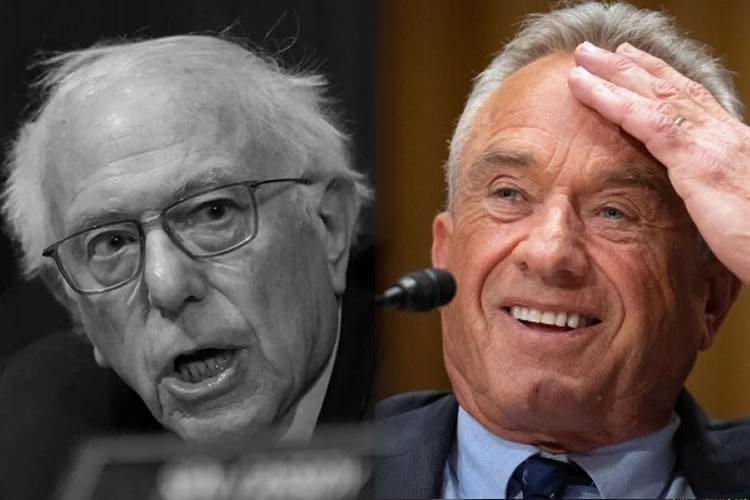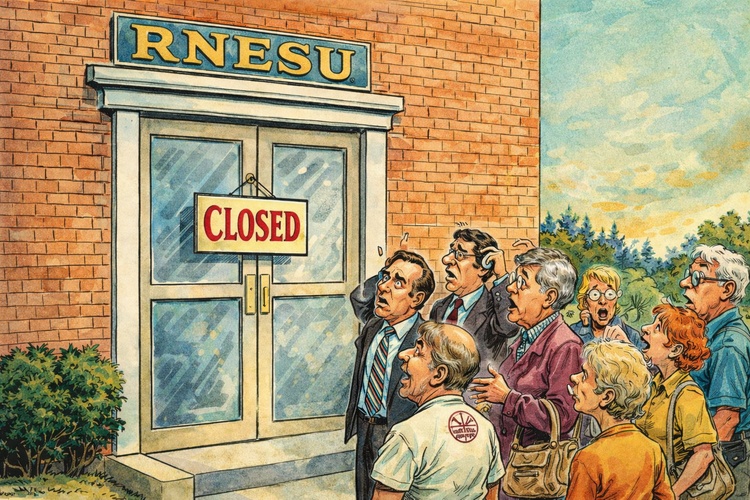At a recent Senate Finance Committee hearing, Health Secretary Robert F. Kennedy Jr. faced pointed questions from lawmakers about his leadership of the CDC. While many senators raised valid concerns—ranging from the agency’s recent internal unrest to the firing of CDC Director Susan Monarez—it was Senator Bernie Sanders who delivered one of the more charged exchanges of the day.
While Sanders’ exchange with Kennedy stood out for its intensity, it also highlighted a deeper issue: lawmakers often seem more inclined to posture around science than to engage with it directly.
The Exchange That Took Center Stage
The exchange began when Sanders quoted a years-old comment from former President Donald Trump, who once called the COVID-19 vaccine rollout “one of the greatest miracles in the history of modern medicine.” He then asked Kennedy whether he agreed, pressing him to either accept the medical establishment’s consensus or brand himself a vaccine skeptic once again. Kennedy, staying calm, avoided the binary trap. Instead, he pointed out that even President Trump—now serving his second term—has recently called on pharmaceutical companies to publicly release the data justifying their COVID vaccine claims.
In a widely shared Truth Social post, Trump wrote: “They show me GREAT numbers and results, but they don’t seem to be showing them to many others… I hope Operation Warp Speed was as ‘brilliant’ as many say it was. If not, we all want to know about it, and why.” It was a subtle shift, but one that undermined Sanders’ attempt to wield Trump’s early praise as a rhetorical cudgel. Even the architect of Operation Warp Speed now wants proof, not platitudes.
A Clash Over Credibility and Campaign Cash
As the hearing wore on, Sanders’ tone escalated. He accused Kennedy of spreading dangerous misinformation and undermining trust in science. In response, Kennedy pointed to the vast financial ties between lawmakers and the pharmaceutical industry—highlighting that Senator Elizabeth Warren had received over $850,000 in industry donations, and that Sanders himself had accepted more than $1.4 million. Sanders fired back, questioning Kennedy’s character and motives. Kennedy responded dryly: “Do you think Big Pharma funded my presidential campaign?” The audience laughed. Sanders didn’t answer.
Beyond Vaccines: The Broader Critique
The hearing was not exclusively about vaccines. Senators also raised concerns about Kennedy’s removal of multiple senior CDC officials, including Monarez, whose sudden firing sparked an open letter signed by over 1,000 current and former CDC employees demanding Kennedy’s resignation. Others questioned Kennedy’s decision to cancel certain pandemic-era vaccine research grants and remove longtime members of vaccine advisory boards.
Among several tense moments in the hearing, Sanders’ confrontation with Kennedy focused less on agency leadership and more on whether Kennedy’s vaccine positions placed him outside the bounds of mainstream discourse.
What No One Asked
What was missing was any meaningful effort to differentiate between population-level benefits of vaccines and the individual-level risks that critics like Kennedy routinely raise. This distinction matters. Vaccines can provide broad immunity across communities while still causing rare adverse effects in individuals. Public health institutions often focus exclusively on the former—aggregate benefits—while people like Kennedy are demanding transparency around the latter.
That kind of nuance might have led to a more productive conversation. But nuance was in short supply.
Nowhere in the hearing was there mention of one of the most basic facts about the disease at the center of the discussion: measles is no longer endemic to the United States. According to the CDC, the only way Americans get measles today is through imported cases—from travelers or migrants arriving from countries where the disease is still circulating.
🍁 Make a One-Time Contribution — Stand Up for Accountability in Vermont 🍁
This detail is especially relevant in light of the recent Texas measles outbreak, which resulted in over 700 confirmed infections and two child fatalities. The outbreak occurred in counties near the southern border, where large volumes of undocumented migrants have entered the country from regions where measles remains widespread. Yet no one on the committee—not even Sanders, who sounded the loudest alarm—bothered to ask how border policy might relate to outbreak prevention.
Equally absent was any mention of the 21 breakthrough infections in fully vaccinated individuals during the same Texas outbreak. While such cases are rare and expected within a small margin of vaccine failure, they still merit honest discussion—especially when lawmakers are debating exemption policies and vaccine mandates.
The Conversation That Didn’t Happen
Instead, the hearing became an exercise in rhetorical positioning. Sanders invoked the American Medical Association and the American Academy of Pediatrics as unimpeachable authorities, declaring that Kennedy’s dissent amounted to “insulting the scientific community.” Kennedy responded that institutions, like individuals, can be compromised—and that public trust depends not on silencing questions, but answering them.
It was not an unreasonable position. Science is not static. Consensus can shift. And when the stakes involve individual health, parental rights, and public policy, refusing to engage with uncomfortable data only deepens public mistrust.
Science Deserves Better Than Soundbites
In the end, the hearing exposed more than just Kennedy’s controversial decisions. It revealed how ill-equipped many in Congress are to grapple with scientific complexity. When leaders substitute volume for logic and consensus for evidence, the result isn’t clarity—it’s polarization.
If the goal is better health outcomes, the country deserves more than soundbites and scoldings. It deserves answers.
Dave Soulia | FYIVT
You can find FYIVT on YouTube | X(Twitter) | Facebook | Parler (@fyivt) | Gab | Instagram
#fyivt #rfkjr #vaccinedebate #senatehearing
Support Us for as Little as $5 – Get In The Fight!!
Make a Big Impact with $25/month—Become a Premium Supporter!
Join the Top Tier of Supporters with $50/month—Become a SUPER Supporter!









Leave a Reply